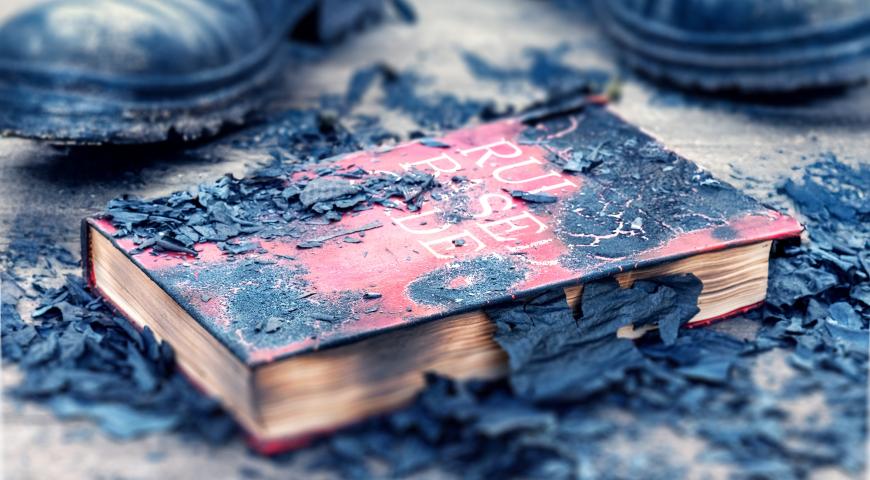Russia’s act of aggression against Ukraine has finally proved the frailty of the UNSC design against belligerent behemoths.
Most serving members of the ADF have experienced one world order: the era of US hegemony that followed the collapse of the Berlin Wall in 1989. Some were present for the late stages of the bipolar era of the Cold War, which began at the conclusion of the Second World War. None have served in a world without the United Nations Security Council. Or, none of us had at the start of this year. However, the design of the council means that an act of direct aggression by one of the five permanent members, which has now occurred, makes it essentially defunct as anything other than a forum for discussion. The most significant instrument for international security is now faced with a crisis it has no answer for. The UNSC may have already died, on 24 February 2022, along with the first Ukrainian soldier. This is noteworthy for military personnel everywhere. Although the UNSC will probably continue to exist under the steam of inertia for some time, and will still provide a valuable diplomatic forum, the ADF needs to recognise the event and consequences of its paralysis.
Parallels to the current crisis can be drawn with the events that spoiled the League of Nations, the council’s predecessor. In 1935, Italy challenged the power of the League with its invasion of Abyssinia. When the League failed to react, Germany became bolder. Four years later, the Wehrmacht entered Poland and peace was broken all over the world.
The UNSC was purposefully structurally impaired from its creation. It is biased against action on the belief that inaction is safer than escalation unless there is widespread agreement among the powerful. The presence of this widespread agreement in its decision-making process is guaranteed by the powers of the Permanent Five (P5). Following the Second World War, the five states perceived as having the greatest power, France, Russia, the UK, China, and the United States, were given permanent representation among the council—other states have had to vie for rotational positions—and the power to veto any action by the council. This was intended as a recipe for stability and unity. The result was a long period of peace amongst great powers, though how much of the post-1945 peace can be attributed to the council itself is hard to quantify.
It is arguable that the council has been less responsible for the stability experienced in its time than individual actors. The interaction between logical leaders, and the unappetising outlook of strategy governed by mutually assured destruction, was probably more responsible for keeping the Cold War cold than the interactions facilitated by the council. After 1989, great power conflict was unthinkable because it would have been unwinnable; the US was distinctly more powerful than its closest competitors. Regardless of the UNSC’s presence, the environment of international relations has been inhospitable to aggression since 1945.
Seen as a product of the long peace rather than its producer, the UNSC instead acts as a canary in a coal mine. If not a creator of stability, its continued survival has at least been an indicator of stability. So if it is now dead, the hegemony that underpinned it must also be faltering, and the order of the world must be undergoing a significant shift.
What, then, comes next?
The beginning of the Russian-Ukrainian conflict on 24 February 2022 will likely become known as the marking point for the end of the American hegemonic era. The shape of the coming order is being defined right now by the world’s responses to the crisis. What one can expect is that the new order will be multipolar, meaning it will be governed by the interaction of multiple equivalent actors, which will naturally be more chaotic. States’ actions will show less respect for rules that can no longer be backed up by force, and therefore will be less reliable and less mutually agreeable. An end to the UNSC means an end to great power unity, which means a predisposition to individuality, selfishness, and conflict.
But the end of the UNSC does not mean an end to collective security. Collective security will be more informal but must be more decisive. Organisations like NATO will have to establish firm and unbendable boundaries to maintain structure and stability. Without the container of a hegemon or structured world order, the art of balancing power to ensure peace will require agility, vigour, and communication.
In memoriam of the UNSC, one must acknowledge its failures. Without forgetting that the structure of the last 77 years has managed to avoid a major war for most of a century at a time in history where war could mean extinction, it is important that the lessons which cost lives are learned.
The inability of the UN to update the P5 members has meant that the relevance of the council has aged with time. Some of the members are no longer of global significance, while some countries that have become of global significance, ie India, are unrepresented. Today the P5 represent a largely Euro-centric and dated group. As the fortunes of the world are apt to change, a system to adapt to this change is essential to any future world order that desires to last.
Additionally, the focus on preventing great power conflict, which is at the heart of the council’s design, willingly sacrifices the voices of smaller states and the United Nations goals of establishing universal human rights and preventing genocide. In Myanmar, Syria, Rwanda and many other small states, the council’s inaction bias allowed for suffering to occur that could have been prevented.
Finally, the major weakness of the council has been exposed by the invasion of Ukraine: a permanent member is irreproachable. With the veto power, Russia can block any action against itself. To fix this flaw, the council must be recreated to either allow for the exclusion of renegades or withdraw the veto power and its requirement for total consent to precede action, either of which would dramatically alter the function of the organisation. The result would be an instrument that is more resolute and active, but also more open to confrontation.
This article was written on 26 February 2022. On 6 May 2022, the UNSC passed its first resolution directly confronting the invasion. It was only able to say “The Security Council expresses deep concern regarding the maintenance of peace and security of Ukraine.” It did not describe the conflict as a war.
Biography
Sub Lieutenant Jack Mackay Stanhope is a Maritime Warfare Officer in training from Newcastle, New South Wales. He joined the Royal Australian Navy in 2018 and completed a bachelor of Arts, majoring in Politics and Indonesian Studies at the Australian Defence Force Academy in 2021.
Please let us know if you have discovered an issue with the content on this page.
Comments
Start the conversation by sharing your thoughts! Please login to comment. If you don't yet have an account registration is quick and easy.




